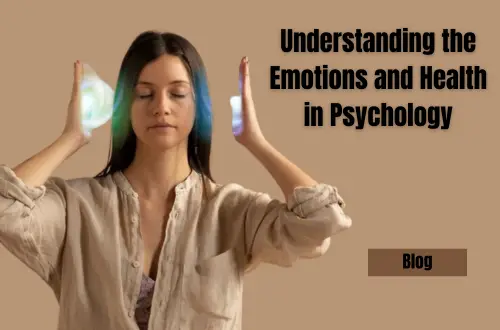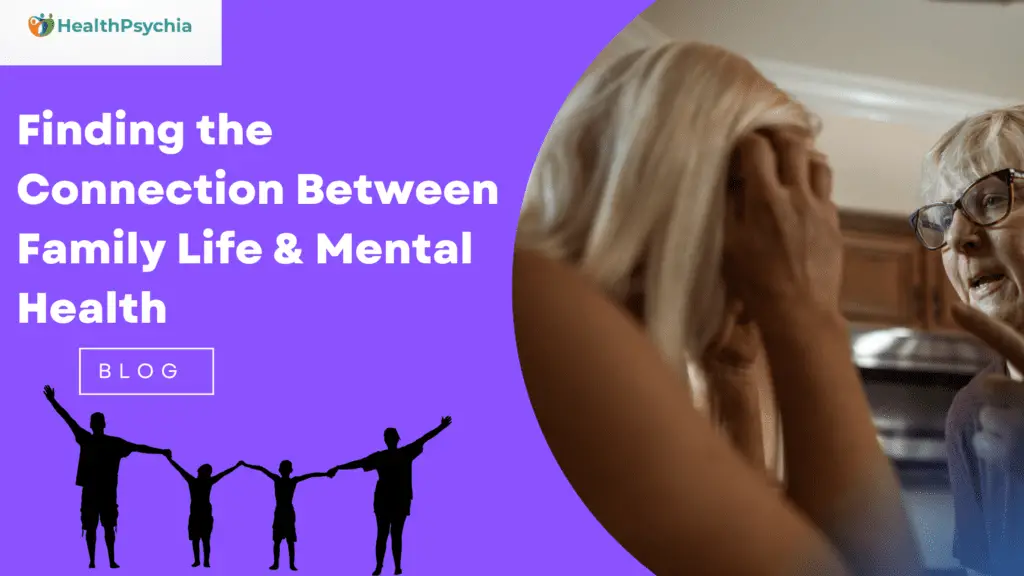Emotions play a profound role in our mental and physical health. Psychology research has uncovered just how deeply our emotion and health in psychology impact our overall well-being. Understanding this mind-body connection can help us take control of our health.
The Link Between Emotions and Mental Health
Our emotions directly impact our mental health and psychology. Extreme or uncontrolled emotions like chronic stress, anxiety and depression can lead to psychological disorders. On the other hand, positive emotions like joy, interest and contentment are linked to overall life satisfaction and happiness.
How do Emotions Influence Thinking?
Emotions guide our thinking and decision-making. When we’re in a positive mood, we tend to think more creatively and optimistically. Negative emotions like fear and anger tend to lead to more rigid, irrational thinking. This is why therapists often focus on identifying and adjusting emotional triggers behind unhealthy thought patterns.
Emotional Disorders
Unresolved emotional trauma and chronic negative emotional states often manifest as psychological disorders like clinical depression, anxiety disorders, OCD, PTSD, and more. Therapy focuses on processing difficult emotions to relieve symptoms. Medications used to treat mental illness also target brain chemicals that regulate emotions like serotonin.
The Influence of Emotions on Mental Health
Our emotions and moods have a significant impact on various aspects of our mental health and psychological functioning. Here are some of the key ways they influence our cognition and behavior:
Decision Making: Emotions play a role in how we think through decisions, assess risk, and weigh the consequences of choices. For example, anxiety or fear can make us more risk-averse.
Motivation: Our emotions provide motivational cues, energizing us towards certain actions and goals or prompting us to withdraw. Positive emotions like joy make us more inspired and engaged.
Attention & Focus: Stress, anxiety and other negative emotions can impair our focus and ability to concentrate. A mood like calm or contentment helps sustain attention.
Learning & Memory: Emotions influence what information we pay attention to and remember. Memories encoded during emotional situations often become deeply imprinted.

Self-Esteem: Chronic negative emotional states like depression or anxiety can damage our self-esteem and self-image. Positive affect promotes self-confidence.
Social Functioning: Our ability to have healthy relationships relies partially on our capacity to communicate our emotions to others through facial expressions, gesturesand tone of voice.
The Impact of Emotions on Physical Health
The mind-body connection also means that our emotional states trigger physiological changes that can affect our physical health in significant ways. Here are some of the key mechanisms:
The Cardiovascular System: Negative emotions like anger and anxiety activate the sympathetic nervous system, leading to increases in heart rate, blood pressure, and circulating stress hormones. Over time, this taxes the cardiovascular system. Positive emotions help return the body to healthy baseline functioning.
The Endocrine System: Emotional stress causes the release of cortisol and adrenaline hormones that influence everything from immune function to metabolism and reproductive health when out of balance over long periods. Relaxation and laughter help counteract this.

The Neuroendocrine System: Emotions alter levels of neurotransmitters like dopamine and serotonin in the brain that regulate biological rhythms, sleep-wake cycles, pain response and more. Depression disrupts these cycles.
The Immune System: Chronic stress depresses immune function, while positive moods boost it. For example, laughter increases numbers of anti-body producing cells and infection-fighting proteins.
Pain Response: Negative emotional states like fear, anxiety, or sadness lower pain thresholds, while positive emotions help reduce pain sensitivity. Emotions can also modify inflammation levels.
The Benefits of Positive Emotions
Studies show that positive emotions and health in psychology like joy, gratitude, and interest are key to resilience and overall mental health. Positive emotions help broaden thinking, spark creativity, improve focus, and counteract negative emotional states. This is why practices like mindfulness, meditation, and positive psychology exercises are so beneficial.
The Relationship Between Emotions and Physical Health
Emotions create physiological changes in the body that over time can impact physical health. Chronic stress and negativity appear to be linked to poorer health outcomes.
The Mind-Body Connection
The limbic system of the brain, which handles emotions, is directly linked to the immune system, hormones, and heart rate. This means our emotions trigger physical responses. For example, anger and fear generate the stress hormone cortisol, while happiness releases endorphins. Over time, these chemical responses influence health.
Stress and Disease
Studies show that chronic stress suppresses immune function and raises inflammation, undermining the body’s ability to fight disease. This explains why constant stress often results in more frequent colds and illnesses. Unmanaged stress is also linked to inflammation-related conditions like heart disease, digestive issues, diabetes, and cancer.
Optimism and Health
On the other hand, positivity and optimism appear to boost immunity and heart health. Laughter triggers the release of neuropeptides to relieve stress. Positive emotions also encourage healthy behaviors. For example, happiness makes people more likely to be active, eat well, and socialize. These lifestyle factors impact health over the long-term.
Applying Emotion Research to Improve Well-Being
The psychology research on emotions provides key insights we can use to take control of our mental and physical health. Here are some evidence-based tips:
Process Emotions
By processing challenging emotions through self-reflection, journaling, and therapy, we can reduce their toxic effects on the mind and body. Opening up about emotions eases their burden.
Adopt Coping Skills
Coping strategies like meditation, breathing exercises, cognitive behavioral therapy and positive self-talk mitigate daily stresses and negative emotional patterns. This supports mental health and resilience.
Seek Social Support
Close relationships ground us emotionally. Sharing feelings and bonding with others calms the mind and boosts positive emotions. Social ties also encourage healthier lifestyles.
Practice Gratitude
Focusing intentionally on blessings, privileges, and the positive fosters gratitude, contentment, and well-being. Gratitude journaling has proven mental and even physical health benefits.
Get Active
Exercise and movement are powerful mood boosters that relieve anxiety, depression, and stress hormones. Being active also supports physical health and longevity.
Conclusion
In summary, our emotions directly impact our psychology and physical health, for better or worse. Fortunately, we can control our emotional patterns through emotional intelligence, coping strategies, and lifestyle changes to support overall well-being. Monitoring and managing our emotions is just as important as diet and exercise for achieving whole body health.


